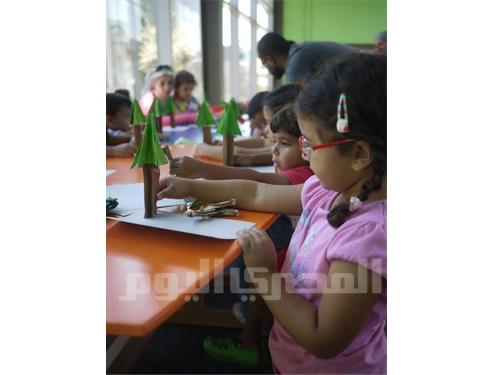
Raising children of character is every parent’s objective. However, dealing with possible challenging behaviors is not an easy job, says Maha Adel, certified parenting instructor and early childhood development specialist.
Parenting requires building an intense awareness about the developmental stages of their children and how to act accordingly, she says.
Here are some indispensible tools, as Adel put it, for healthy development stages of babies and toddlers.
Deal with your children’s little white lies
One of the problems parents commonly face is that kids lie constantly despite the fact that they do not subject to harsh punishment when doing something wrong.
Parents should not consider this behavior as a sign of bigger dishonesty to come. The truth is that children at age of two or three do not deliberately attempt to deceive others.
At such young age, kids’ brain is still going through a developing process and do not recognize the nuances of stretching the truth and lying. Consequently, they usually resort to manipulating the truth out of good intentions such as protecting others’ feelings.
For example, kids may come up with an imaginary story such as the cat spilled the milk while there is no cat in the house in the first place. By adopting this attitude, little ones mistakenly believe that they can escape the guilt and prevent parents’ upset.
Discussing the problem with your children is the best tool to control this behavior. Explain the consequences of lies and how far can this affect their image as a distrusted individual or can get them in troubles. On the other hand, reward positive behavior to encourage them to adopt it again.
Let kids explore free will
Avoid the traditional attitude of authority and embrace ‘children’s friends’ approach instead. This is not about getting ride of all boundaries; but giving them limited freedom that goes along with their mental abilities in an effort to instill decision- making skills in children at young age.
You should allow them the space to express their own point of views. And even if they are wrong, do not undervalue them. Instead, explain the reasons why these views are not convenient and discuss other alternatives that are more appropriate for the situation.
Ignoring or laughing at their opinions result in gaining low self-esteem and losing trust in their parents. Kids will fear to express their individualities openly and sometimes avoid reaching out parents and asking for help in fear of being belittled.
For example, give them the choice concerning simple issues, such as what to wear or which place to go for playing. This certainly has a profound psychologically impact on kids. As they grow older, teach them to learn from their mistakes that would—eventually–turn them to wise decision makers and do not fear bearing responsibilities.
Fit reality into kids’ fantasy world
Most Egyptians lack the culture of playing with their children and using games and entertainment activities to discover their inclinations at young age.
Dramatic play is crucial part of the development learning process of kids. Most parents go for stuffing kids’ minds with information while in fact they learn best from first-hand and concrete experiences.
It allows children to choose their favorite roles and act them out in an interesting, safe environment. During this creative dramatic experience, little ones explore the surroundings, learn the tasks of professions or get involved in problem-solving attempt. Subsequently, they acquire social skill, develop their both gross and fine motor skills, and cognitive abilities and enrich their vocabulary.
The Confident Parent Foundations encourages those interested in parenting workshops to like their facebook page and follow for updates. Stay tuned for dates of the next workshop.
